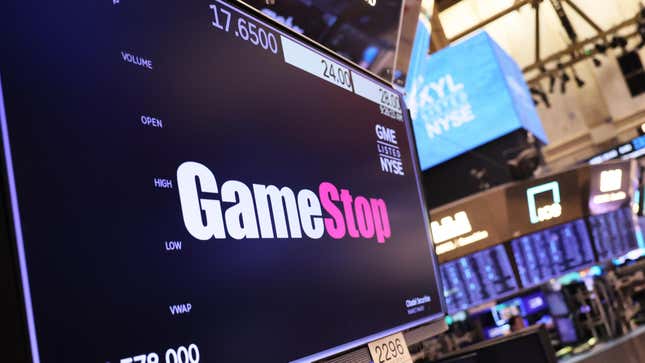
Normally, when a company builds up a huge cash position and not much debt, it uses the money to buy back shares and reward investors. Not GameStop. Instead, the retailer-turned-meme-stock announced it will now allow CEO and chairman Ryan Cohen to invest its $900 million in cash and cash equivalents in other companies’ stocks.
In an otherwise uneventful earnings release on Dec. 6—it posted a loss of about $3 million for the quarter on revenue of just over $1 billion—GameStop revealed that its board had approved a new “investment policy” this week “that permits the Company to invest in equity securities, among other investments.” The company didn’t explain the move further, as it declined to hold an earnings call where analysts typically ask questions about public firms’ financial disclosures.
A video-game retailer or a mutual fund?
GameStop became a meme stock during a short squeeze that backfired on the company’s doubters so hard that Netflix made a movie about it. It eventually issued a bunch of new shares that brought in enough money to leave the company practically debt-free. It then spent a bunch of its new funds on upgrading back-end systems and various initiatives that included a gift card partnership last year with cryptocurrency trading firm FTX. The latter got canceled less than two months after its announcement after FTX imploded in a pile of bankruptcy paperwork and federal indictments.
Wedbush Securities analyst Michael Pachter, who has a bearish “underperform” rating on the stock sounded exasperated as he wrote up the latest quarter’s performance (example: “[W]e think that the Street’s previous expectations and our own have become stale”) and threw up his hands at GameStop’s new revelation.
“Investors have a myriad of investment vehicles available to them and therefore do not need GameStop to act as a mutual fund,” he wrote.
The move probably sounds even less exciting to former employees who were let go during multiple rounds of layoffs last year, or current employees dealing with GameStop’s new regime of “extreme frugality.”
GameStop shareholders, meanwhile, seem just fine with the plan. Shares of GameStop rose 10% in today’s trading session.